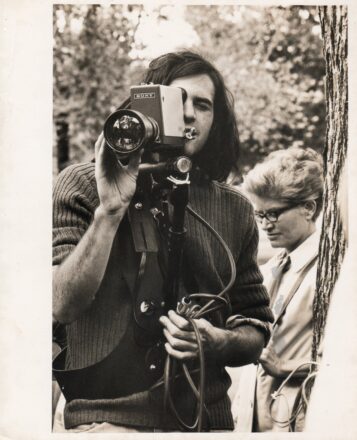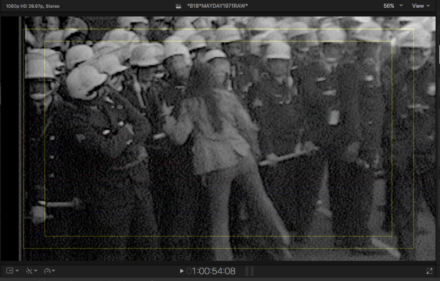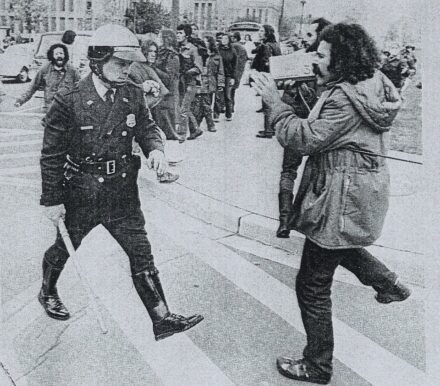Crandell Theatre proudly presents Mayday 1971 Raw, marking the 50th anniversary of the 1971 May Day peace protests that made history, with record-setting civil disobedience arrests and leading to the end of the Vietnam War. The protestors’ slogan: “If the government won’t stop the war, we’ll stop the government.” The early video documentary was recorded by Mayday Video, an ad hoc group of pioneer video makers, including Videofreex, who lived and had a pirate TV station in the Catskills during the 1970s.
This virtual community event features access to a 66-minute, 21st century edit of the original video compilation from the historic 1971 May Day protest. Participants are invited to view the film in advance of the event, and tune in to a panel discussion on May 1st at 5 p.m. To gain access to the film, please register for the event here. A link to view the film will be sent via email with registration confirmation.
The panel discussion will be focused on Mayday 1971 Raw, local community members who were present in Washington D.C. that day, and the lasting impact of political activism and social change as it relates to political and cultural issues of today. This event is free and open to all.
Leading the panel discussion will be Academy Award winning filmmaker Deborah Shaffer. Panelists include Parry Teasdale, editor and publisher of The Columbia Paper, Carol Vontobel, Videofreex member, Skip Blumberg, producer, filmmaker, camera journalist, and artist, and Laurence Kardish, FilmColumbia co-artistic director and former senior film curator at MoMA. Blumberg, Teasdale, and Vontobel were all members of the pioneering video collective Videofreex. Rennie Davis of the Chicago Seven and Dr. Benjamin Spock also appear in the film.
“Videofreex, one of the first video collectives, was founded in 1969 by David Cort, Mary Curtis Ratcliff and Parry Teasdale, after David and Parry met each other, video cameras in hand, at the Woodstock Music Festival. The group soon grew to ten full-time members–including Chuck Kennedy, Nancy Cain, Skip Blumberg, Davidson Gigliotti, Carol Vontobel, Bart Friedman and Ann Woodward–and produced tapes, installations and multimedia events. In 1971 the Freex moved to a 27-room, former boarding house called Maple Tree Farm in Lanesville, NY, operating one of the earliest media centers. Their innovative programming ranged from artists’ tapes and performances to behind-the-scenes coverage of national politics and alternate culture. During the decade that the Freex were together, this pioneer video group amassed an archive of 1,500+ raw tapes and edits.” – Video Data Bank




